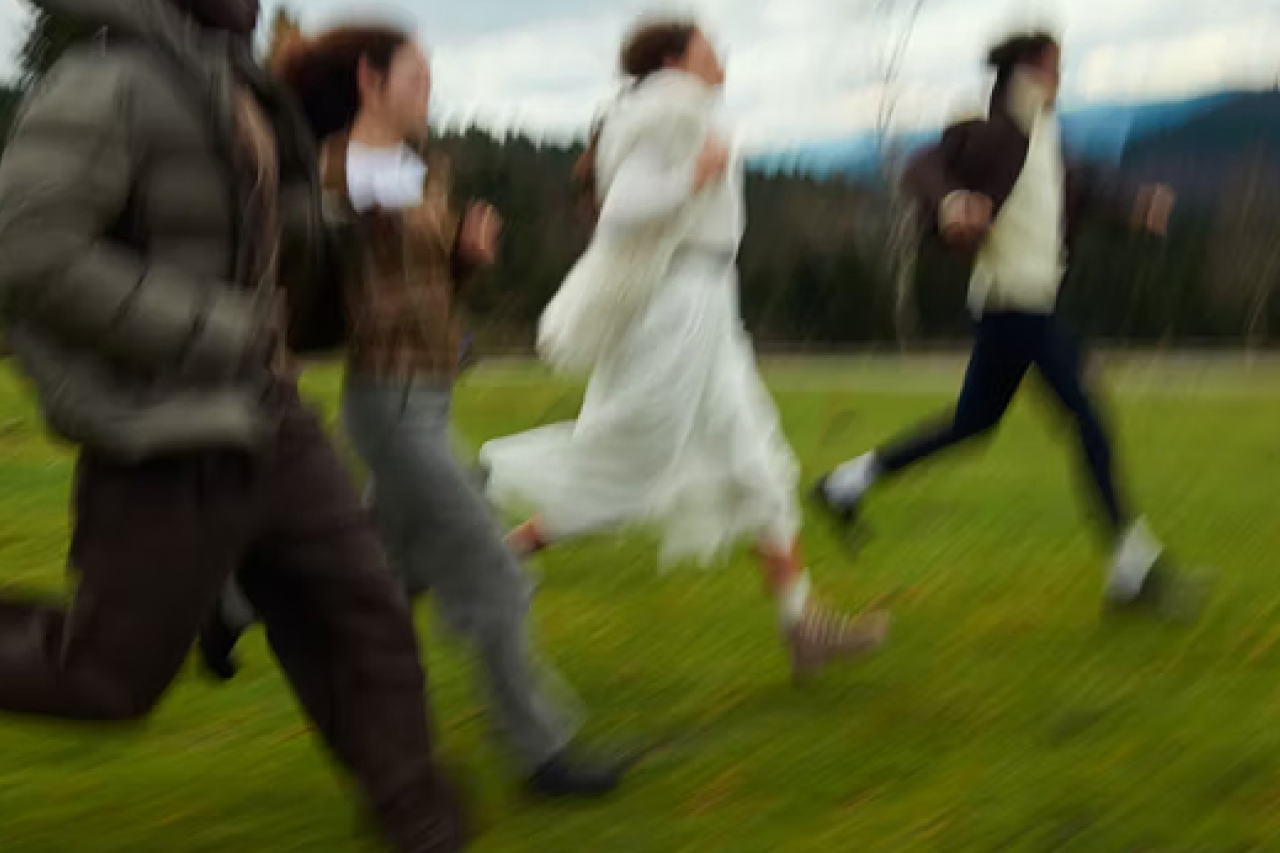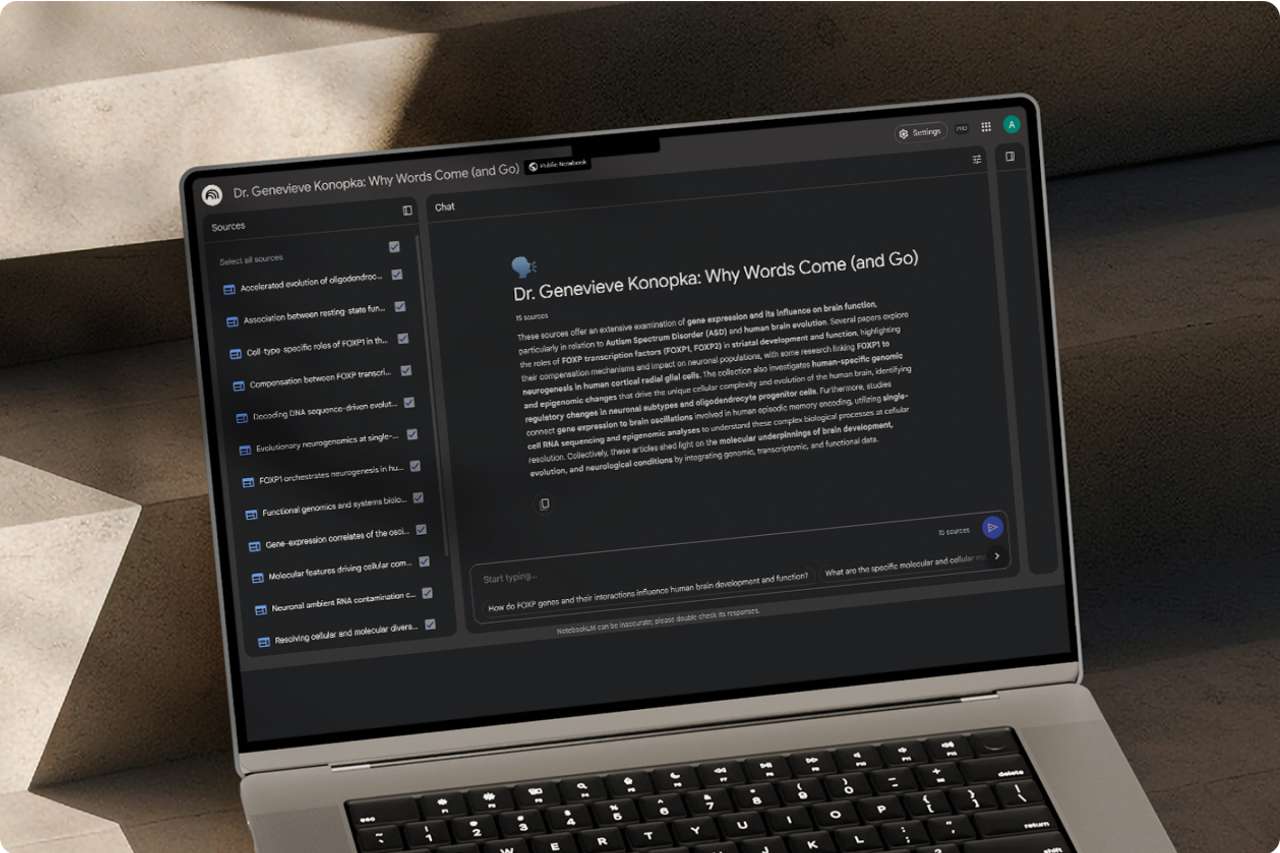The Science of Language and Recall
A NeuroNote collection that lets you explore UCLA-curated research in a new way. Ask big questions at any level of understanding.

Why Words Come (and Go)
How your brain’s timing supports speech and memory
I study the signals that help you find the right word, hold a thought and make memory stick. To do this, my lab looks for human-specific genetic “switches” and studies which brain cells use them.
In partner neurosurgeries, patients do simple memory tasks while we record intracranial EEG (the brain’s natural rhythms), and then we analyze gene activity in that same tissue. Linking the signals to the molecules shows which genes and cell types support the rhythms that carry speech and memory.
This collection gathers papers, talks and plain-language explainers so you can ask questions, see cited answers and understand what current science can (and can’t yet) say about supporting cognition across life stages.

Dr. Genevieve Konopka
A Place for Infinite Curiosity
Here’s how it works:
- Sources are curated by UCLA Health and Dr. Genevieve Konopka.
- Ask a question and the collection provides answers only from these sources.
- Open any paper, talk or explainer to go deeper.
Try Asking Questions Like:
In very simple terms, what are “brain rhythms?”
Explain to me like I’m in elementary school: What does “gene activity” mean?
Why do words sometimes feel “on the tip of my tongue”?
Why is this research important?
How could this research help people with memory problems?
